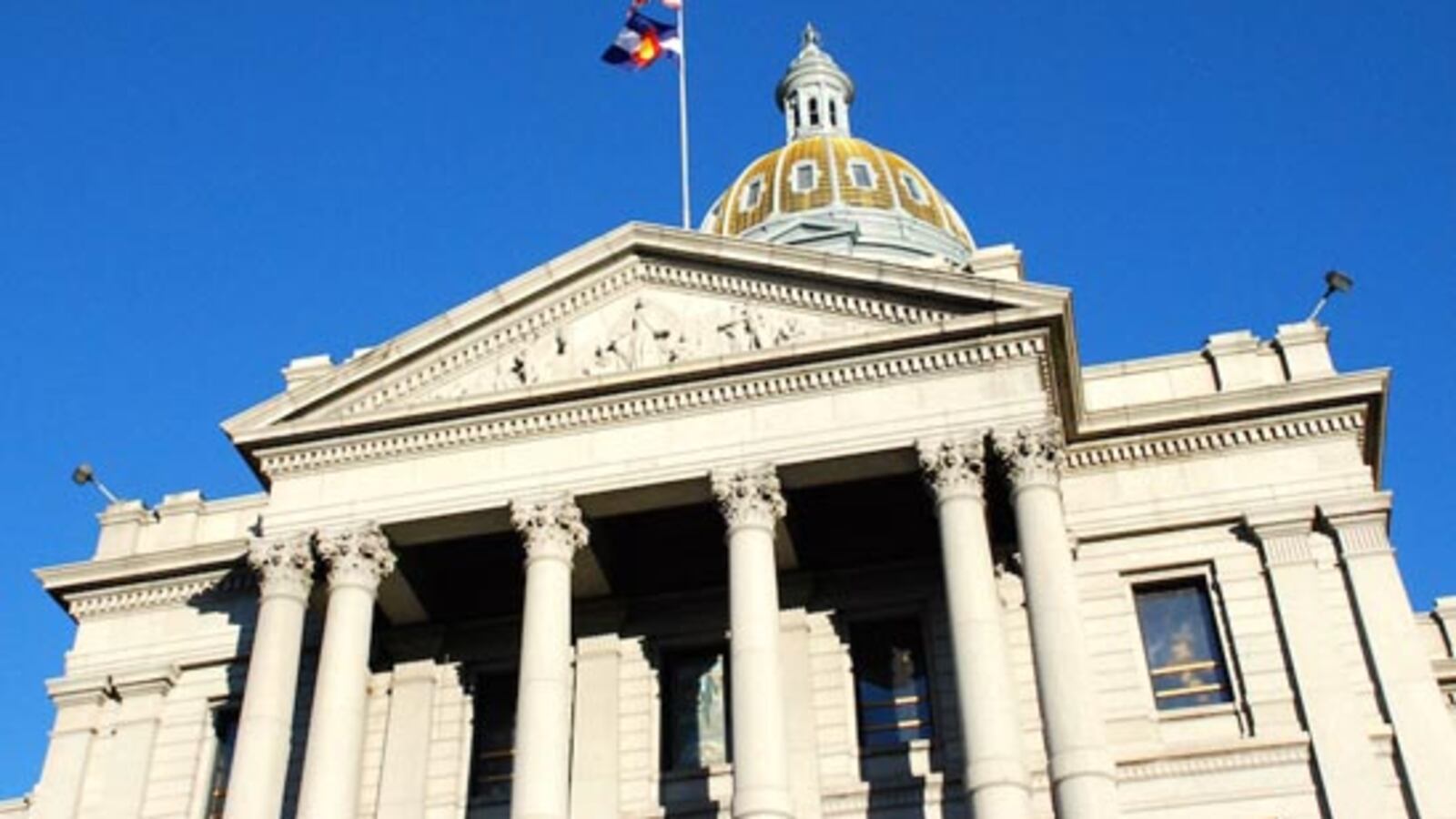The Senate Education Committee Thursday unanimously approved a key student data privacy bill, but not until adding an amendment that might complicate the delicate balance of interests backing the measure.
Senate Bill 15-173 is the sole surviving 2015 bill on security and privacy of student data, an issue of increasing concern in Colorado since Jefferson County parents pushed back against a controversial data collection system in 2013.
In its original form, SB 15-173 proposed to restrict software, database and app companies from sharing, mining, selling or using personally identifiable student data and from compiling such data for commercial uses. The bill also would ban direct marketing to students based on their individual data. The committee approved a full rewrite of the bill – known in legislative parlance as a “strike-below” – but the basic thrust of the measure remains the same. (See the amended version of the bill here.)
The measure also would require school districts to provide information to parents about data collection and all vendors used by a district. Small rural districts would be excluded from this requirement. Districts also would have to provide staff training on data security and notify parents of data breaches.
The bill would apply to companies that supply educational services, not to broader online or other services like web search engines.
But it’s a second amendment that’s causing heartburn. Proposed by Sen. Laura Woods, R-Arvada, the change would impose additional disclosure requirements on vendors and also would require the deletion of student records within three years after they were no longer needed by a vendor to fulfill its contract with a school district. The amendment was added to SB 15-173 on a 5-4 party-line vote, with majority Republicans prevailing. (Read the Woods amendment here.)
Lobbyists for vendors don’t like the additional requirements, and school districts are worried that requiring vendors to delete data after three years would require districts to bear the expense of maintaining their own backup databases of student information that originally was collected by vendors. (Sen. Andy Kerr, D-Lakewood, raised the example of a student who needs copies of academic records several years after graduating from high school.)
SB 15-173 was drafted after months of negotiations among school districts, parent groups and vendors, brokered by Elisabeth Rosen, lobbyist for the Colorado Association of Schools Executives.
The bill also has bipartisan sponsorship – Republican Sen. Chris Holbert of Parker and Democratic Rep. Dan Pabon of Denver. Holbert repeatedly told his fellow education committee members Thursday that he’s committed to a bill that can pass both chambers and earn the governor’s signature.
“Rep. Pabon and I will put the bill on the governor’s desk,” he said.
But the Woods amendment, if approved by the full Senate, likely will face opposition in the House, raising the possibility that SB 15-173 could end up in a House-Senate conference committee late in the legislative session.
There was extensive testimony on the bill, including statements from several Jefferson County parents who’ve been advocates for better data privacy protections.
“It’s simply a beginning, a foundation,” said Paula Noonan, a former Jeffco school board member who’s been active on testing and data privacy issues.
Holbert also indicated that the bill wasn’t the final answer to the problem. He said the measure “takes a first step toward restoring trust of parents in their school system.”
The measure next goes to the Senate floor for preliminary consideration. Although it’s possible that the Woods amendment will generate costs for the bill, which would require it to be sent to from the floor to the Senate Finance Committee.
Two more extensive data privacy bills already have been killed by the House Education Committee (see story). They include provisions on parent consent and opting out of data collection, ideas that weren’t likely to pass.
Senate Finance nixes college savings bill
A bill that would have created an additional tax advantage for low- and middle-income families who use the CollegeInvest savings program was killed 3-2 by the Senate Finance Committee Thursday.
The apparent deciding vote was cast by Holbert, who described himself as “a very reluctant no.”
But the Parker Republican said he was keeping in mind the interests of his constituents in the well-to-do Douglas County.
The amended version of Senate Bill 15-118 would have created a graduated system of deductions. So families with annual incomes of $150,000 or less could have taken a double deduction, while families that make more than $500,000 a year could have claimed no deduction. (Currently CollegeInvest participants get a $1 income tax deduction for every dollar deposited in the program, regardless of income.)
“The people who elected me and whom I represent are in those two upper brackets,” Holbert said. (The bill also would have changed the credit for families making between $250,000 and $500,000 a year.)
Get more details on what the bill would have done in this legislative staff memo.
Parties unite on workforce development bills
Members of both parties teamed up at a joint news conference to announce a package of workforce development bills, several of which are related to education.
Here’s a quick look at some of those bills that yet to be formally introduced:
- A measure that would make apprenticeship and internship programs part of state concurrent enrollment programs, which up to now have focused on helping high school students take college-level courses.
- A proposal to help high school students focused on STEM courses to earn a high school diploma and an associate’s degree at the same time.
- A bill that would establish mobile learning labs that would bring community college courses to workplaces.
Several other workforce development bills already have been introduced in the 2015 session.


